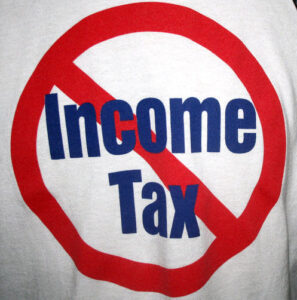
A nation of the people, by the people, for the people.
The United States — a constitutional republic designed over 200 years ago under the then-radical idea that every man and woman is equal under the law, regardless of color, creed, lineage, or wealth status.
While this idea was the foundation for our country, this understanding is not the standard operating procedure of the 21st century U.S. government. The relationship between government and the people has dramatically changed, especially over the last hundred years.
Today, the federal government treats the wealthy as bottomless financiers. Without blinking, the same government that operates from taxing the rich is quick to direct accusations of greed towards citizens less than enthusiastic at the idea of surrendering ever-increasing portions of their wealth to the state.
Conversely, those at the bottom of the economic spectrum are treated as victims. These individuals, while unable to finance gargantuan government projects, are considered as strategic voters to swing elections, their votes “purchased” with money and subsidized benefits.
In each case, the American people are subservient to the state.
It seems to be commonly assumed that taxation as we know it today has always been the way it is, but this is far from the truth. Article I, Section 8, Clause 1 of the Constitution gives to the government the power to lay taxes, but mandates that “Duties, Imposts and Excises shall be uniform throughout the United States.” The purpose of this limiting clause was to keep the federal government from creating interstate warfare between the state governments with unequal taxation.
One century ago this year, the Sixteenth Amendment to the Constitution gave Congress the legal authority to tax the earned income of American citizens. The Amendment, however, made no mention of uniformity or fairness nor did it establish any preventative barriers against favoritism, financial targeting, and resulting conflicts, as were built into Article I, Section 8 of the Constitution.
With the Sixteenth Amendment came the concept of the progressive income tax: the idea that the highest earners must pay a higher percentage of those earnings while earners with lower incomes contribute little to no portions.
Today, the top 40 percent of wage earners pay 106.2 percent of income tax revenue, according to the Congressional Budget Office (CBO). The percentage is not a typo. The number is over 100 percent because the bottom 40 percent of wage earners have an average income tax burden of -9.2 percent—the average IRS refundable tax credit (e.g. the child tax credit) is actually 9.2 percent higher than that earning group’s average income tax burden.
The consequences of this imbalanced system are apparent. No longer is voting the primary means by which the private citizen contributes to the governmental process. Now windfall income tax revenues from the wealthy incentivize crony capitalism. Further, the power to tax income without limiting protections against government abuse and targeting opened the door to the increasingly pervasive cultural conflict of the 21st century: class warfare.
The progressive income tax opened a Pandora’s box of division between Americans. Forty percent of the nation pays no income tax at all, and are even financially endowed from the taxes of the other 60 percent.This creates a system where only 6 in 10 citizens are financial stakeholders in their own government.
This economic situation in which we now find ourselves also fosters the political incentive to focus functions of government toward the wealthy. Additionally, it also fuels class conflict for the 4 in 10 whose only participation in the system is receiving money and voting. One would think that in a nation of the people, by the people, for the people, each citizen deserves exemption from government favoritism and the right to contribute to the governmental process in equal measure. But we have only to take a look at our current tax code to see that this is not practiced on the most fundamental of levels.
The 16th Amendment isn’t without legislative opponents. Language has been put before Congress–like the recent bill authored by Rep. Jim Bridenstine (R-OK)–t0 overturn the amendment in its entirety, forcing Congress to fund the government by means other than unequal claims to portions of a citizen’s paycheck. The hundred-year mark is as good a time as any to abandon the damaging idea that taxing income benefits is a good idea.
Ideas have consequences and the Sixteenth Amendment has resulted in policies that now encourages division between American citizens and fosters the crony relationship between government and business. The government’s relationship with its citizens’ incomes has become unhealthy and ought to be divorced for the health of the republic.
Tom Toth is the Social Media Director for Americans for Limited Government.
Updated on 12/12/2013 at 4:46 p.m. (EST)






